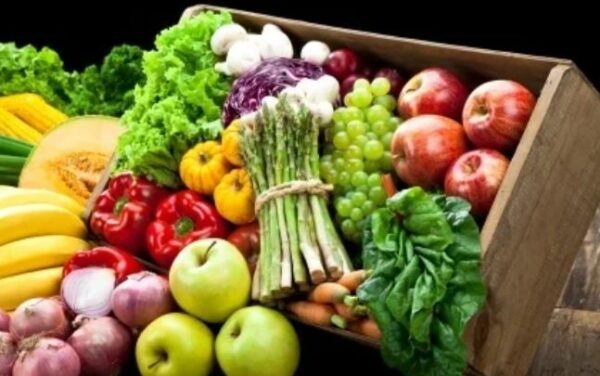Lifestyle
9 fruits and vegetables that are least healthy and nutritious

Are you someone who loves gorging on fruits and veggies and believes them to be super healthy? Then you need to pause and read this!
You will be amazed to know that there are certain fruits and veggies that we have been consuming since ages, believing that they are super healthy and tasty, but there are certain foods that are generally considered healthy but are actually low in nutrition and may not be as beneficial as you think.
1. Iceberg lettuce
Iceberg lettuce is a common salad green known for its crisp texture, but it is relatively low in vitamins and minerals compared to other leafy greens like spinach or kale. It provides minimal amounts of fiber and has a lower nutritional density.
2. Cucumber
While cucumbers are hydrating and low in calories, they are low in essential nutrients. They offer some vitamins and minerals, but in smaller amounts compared to other vegetables. Cucumbers have a high water content but minimal nutritional value.
3. Celery
Celery is low in calories and provides some fiber, but its nutritional content is relatively minimal. It contains only small amounts of vitamins and minerals, making it less nutrient-dense than vegetables like broccoli or Brussels sprouts.
4. Zucchini
Zucchini is low in calories and provides some vitamins, such as vitamin C, but it’s not as nutrient-dense as other vegetables. It lacks the higher levels of antioxidants and essential vitamins found in vegetables like sweet potatoes or bell peppers.
5. Bananas
Bananas are a good source of potassium and provide some vitamins, but they are relatively high in sugars and carbohydrates. While they are nutritious in moderation, they are less rich in other essential nutrients compared to fruits like berries or apples.
6. Grapes
Grapes are a sweet and hydrating fruit but are relatively low in essential nutrients and fiber. They contain natural sugars and offer fewer vitamins and minerals compared to fruits like oranges or kiwi.
7. Tomatoes
Tomatoes provide vitamins C and K and are a good source of antioxidants like lycopene. However, they have lower levels of some nutrients compared to other vegetables. While nutritious, they may not offer the same range of benefits as leafy greens or cruciferous vegetables.
8. Beets
Beets are rich in antioxidants and some minerals, but they are also high in natural sugars. While they have health benefits, their high sugar content can make them less ideal for those managing blood sugar levels compared to vegetables like spinach or kale.
9. Apples
Apples are a good source of fiber and vitamin C but are relatively low in other essential nutrients. They are also high in natural sugars, which can be a consideration for those looking to minimize sugar intake.
Conclusion
In a nutshell, these fruits and veggies are not unhealthy, but due to high fructose levels or acidic content, they may not be suitable for everyone and are generally low in overall nutrient density as compared to others. To maximize nutritional benefits, consider incorporating a variety of colorful, nutrient-dense fruits and vegetables into your diet. Leafy greens, cruciferous vegetables, and berries often offer higher concentrations of vitamins, minerals, and antioxidants.








